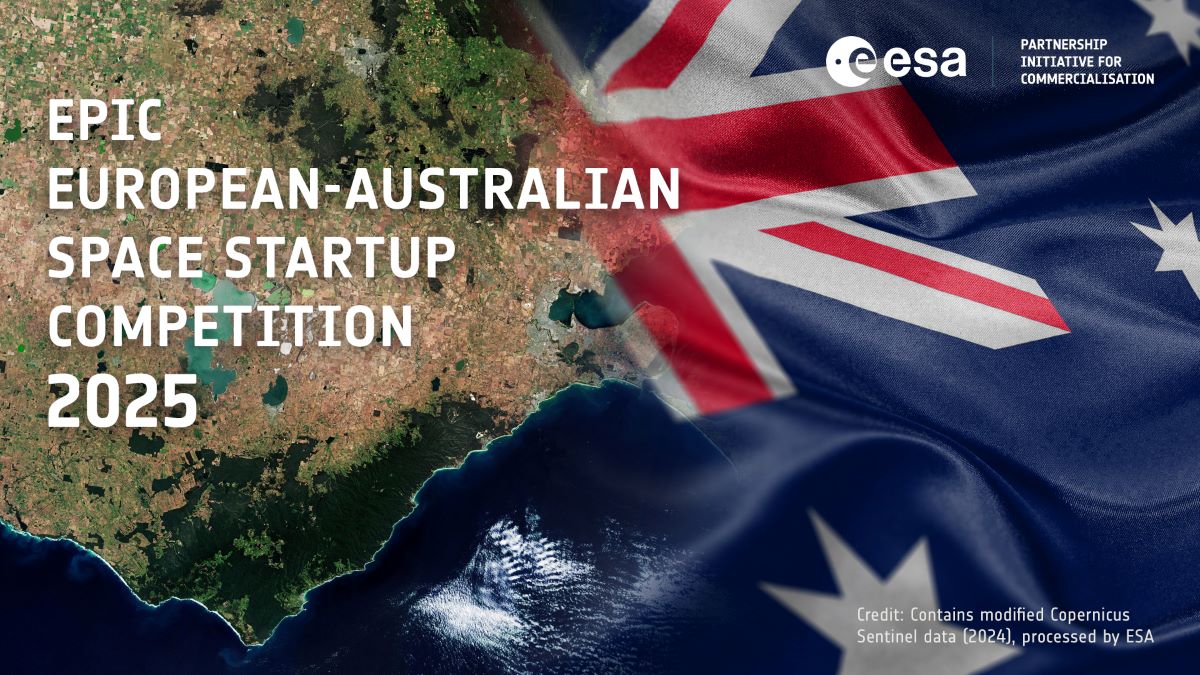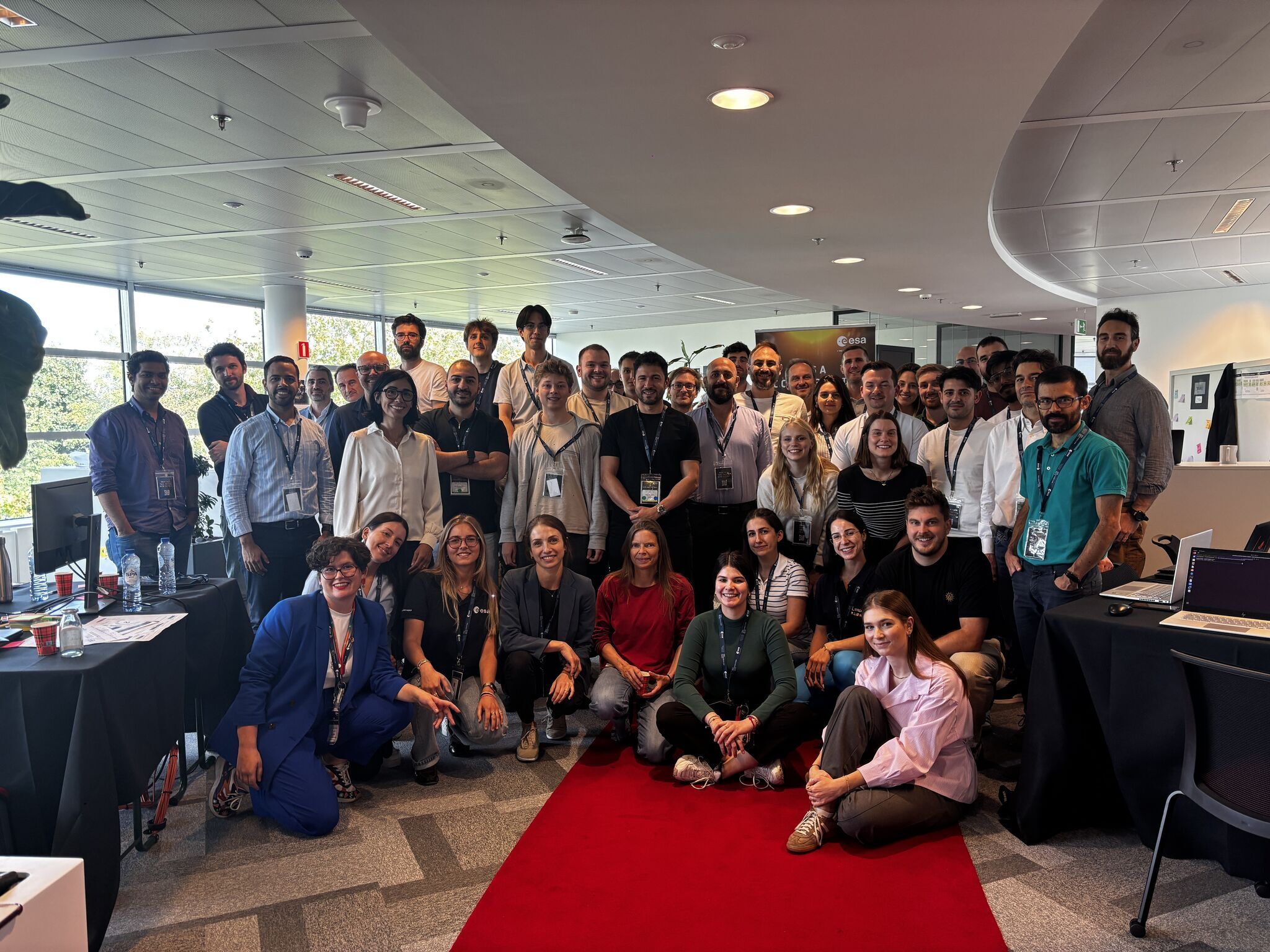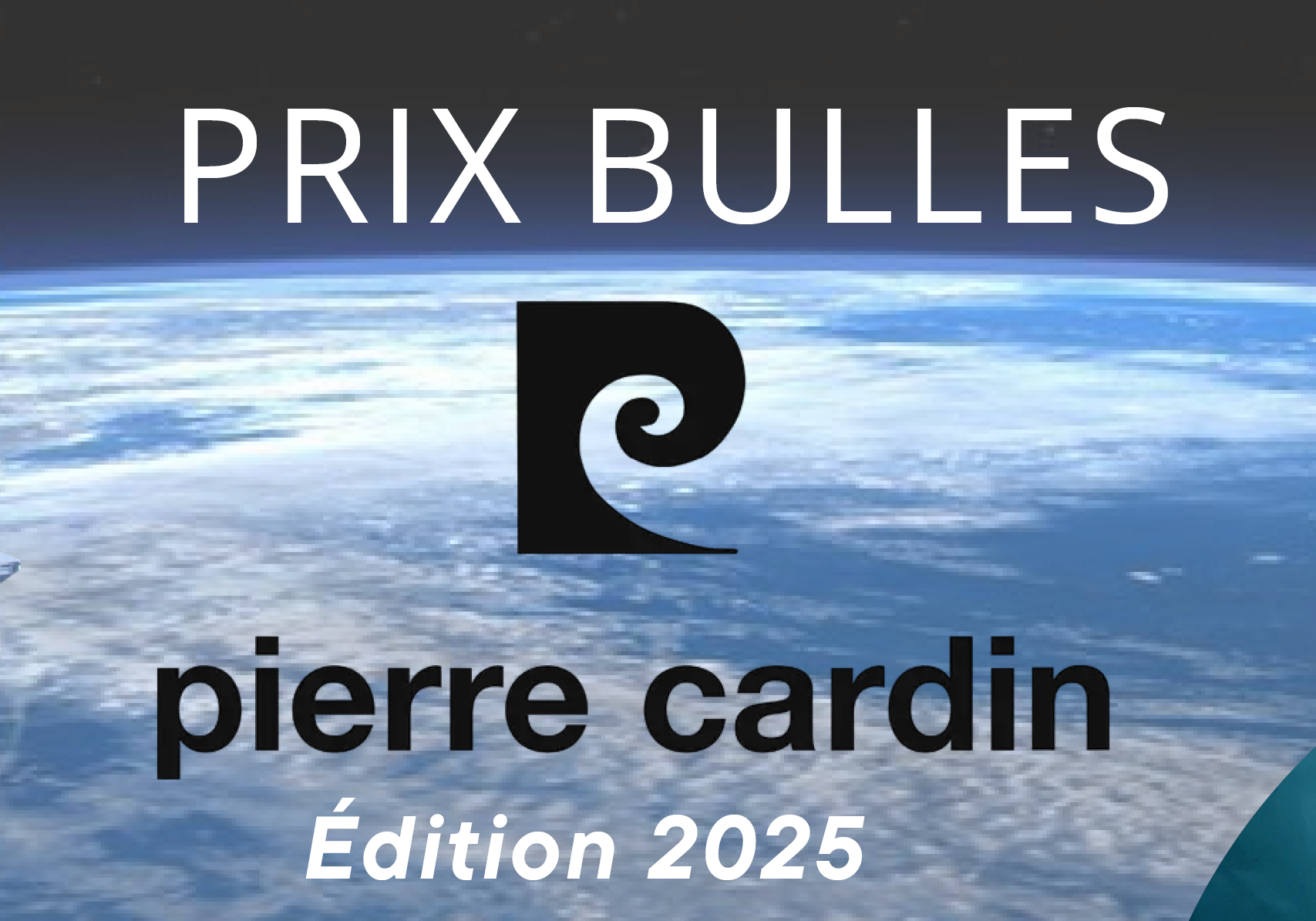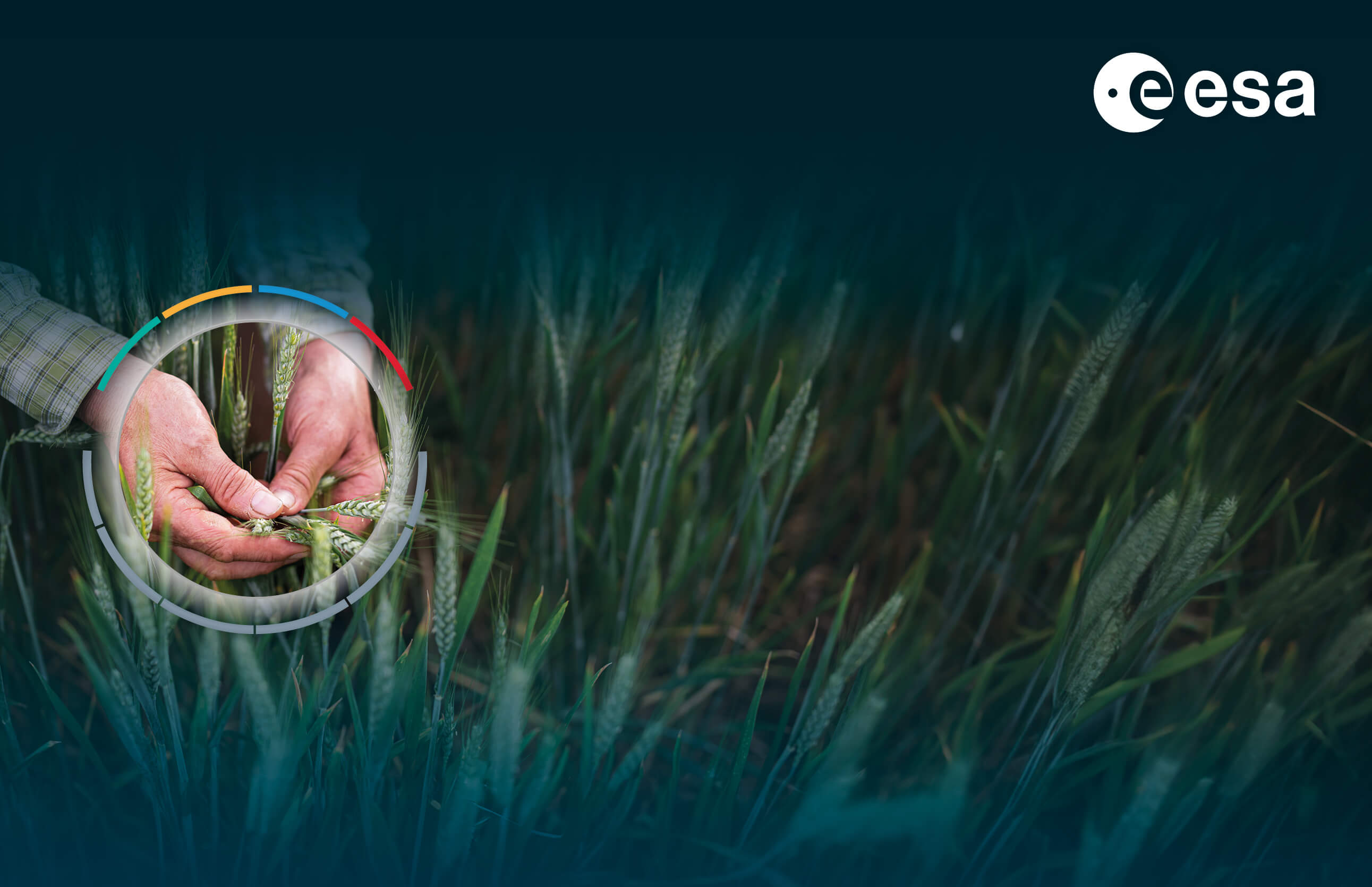It is with great pleasure that we announce the winners of the ESA EPIC European-Australian Space Startup Competition 2025: an initiative that fosters global partnerships, supports access to bigger markets, and drives innovation for Space and for Earth.
It is our ambition to further support the internationalisation of space-based businesses beyond Europe. To materialise it, the winners of this competition will accompany ESA representatives and will receive a sponsorship to attend the 76th International Astronautical Congress in Sydney, Australia, from 29 September to 03 October 2025, “a prestigious event where the world’s space community gathers to access the latest advancements and trends, academic works, industry connections and partnership opportunities”.
Among 30+ candidates, this competition identified the most promising European space-related startups with potential business cases for the Australian market or collaborative projects with Australian partners.

The Winners of the Competition
GyroPlant (United Kingdom): GyroPlant is a UK-based company developing reusable plant-growing superstructures for clean, precise, and scalable crop production in space and on Earth. We work with leading space agencies and companies to design the next generation of research and commercial space agri-food systems.
SharpSat (Germany): Sharpsat is a space-based AgriTech startup that predicts vineyard diseases using satellite imagery, AI, and weather data. Our platform helps farmers reduce fungicide use and losses through early warnings and risk maps, supporting more sustainable and data-driven viticulture.
Solidflow (The Netherlands): Solidflow, a Dutch SME, designs and produces Cool Gas Generators (CGGs) — an innovative, pressure-less way to store gas. We have successfully delivered CO₂ and oxygen CGGs, with hydrogen and other variants currently in development. The CO₂ CGG pressurizes tanks and inflates in-orbit structures, while the oxygen CGG provides instant medical O₂ for GPs and injured soldiers.
Solidkosmos (Greece): SolidKosmos is a spin-off from ESLab at the University of Piraeus and an ESA Business Incubation Centre Greece incubatee. We empower engineers with EDA tools to inject faults into real hardware, such as FPGAs, CPUs, GPUs, and AI cores, for cost-effective verification. Additionally, we provide FPGA IP cores that improve fault tolerance in COTS-based onboard computers and offer radiation effects testing services.
The ESA Commercialisation team extends its congratulations to the above winners and look forward to them forging connections across Australia and beyond.
Connecting Ambitious Innovators to International Markets
Since 2024, the European Space Agency’s Directorate of Commercialisation, Industry and Competitiveness has teamed up with the Directorate of Strategy, Legal and External Matters to help outstanding European space start-ups access business and technical partners in major international markets—including India, Japan, Singapore, and soon, Australia.
For many young companies, entering these markets can be challenging or virtually impossible without a strong network facilitator like ESA. By accompanying ESA representatives to high-profile space events such as the International Astronautical Congress (IAC), competition winners are able to forge direct connections with potential customers and partners—ranging from satellite operators and system integrators to manufacturers, distributors, R&D organizations, investors, and government agencies.
This initiative has supported companies across Europe, from countries such as Czechia, Finland, France, Germany, Greece, Italy, Lithuania, the Netherlands, Slovakia, Spain, Switzerland and the UK. Its pan-European impact is also underscored by the fact that almost all participating start-ups are part of the ESA Business Incubation Centre (ESA BIC) network, which spans 22 countries and has supported around 1,800 companies over the past two decades.
By uniting early-stage business incubation with global growth opportunities, ESA is paving the way for new European champions in the fast-evolving space economy.
Discover more on EPIC








